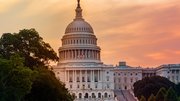News
Nigerian IADs criticize CBN's cashless economy initiative
January 2, 2012
Yesterday marked the beginning of the Central Bank of Nigeria's testing of its cashless economy initiative. Independent ATM deployers in the country are openly criticizing the bank's plan saying that it did not take into consideration recent investments in the industry, according to an article on Vanguard.com.
The bank has said that the policy, which puts a cap on daily transactions, aims to reduce the dominance of cash transactions in Nigeria.
The daily limit for individual for withdrawals is N150,000, and the daily deposit limit is N150,000. The limit for corporate organizations for both withdrawal and deposit is N1 million. Transactions exceeding these limits receive a N100 penalty on every N1000 above the N150,000 limit for individuals, and N200 for every additional N1000 withdrawn or deposited by a corporate organization. The charges will go into effect March 31, 2012.
In 2009, CBN banned banks from deploying off-site ATMs, but two months ago the apex bank succumbed to pressure from other banks and removed the ban.
According to the CBN, banks or IADs would be free to brand off-site ATMs they acquire, as well as process transactions accordingly. Each party would be responsible for providing cash for the off-site ATMs.
IADs ATMC, Chams PLC and Copoteri Services criticized the CBN saying, "Given the capital intensive nature of the offsite ATM channel, policy consistency is paramount to enable IADs attract the requisite investment for sustainable development of the channel."
In a letter to CBN signed by the managing directors of the three IADs, a request for support policy measures was made in order to sustain and create investor confidence.
"Comprehensive policy support for burgeoning IADs: In order for IADs to become significant contributors in the off-site ATM value chain, it is necessary for CBN to put in place a comprehensive policy support package that would enable the IADs to operate off-site ATMs on a level playing field with the banks," the letter said.
For more information on this topic, visit our regulatory issues research center.
 ChatGPT
ChatGPT Grok
Grok Perplexity
Perplexity Claude
Claude












